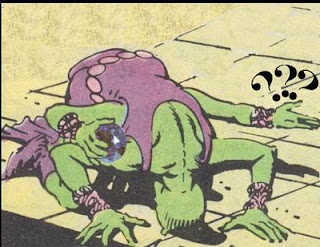
...Although it's quite undeniable that most aspects from the MSW are not any way comparable to the other parts of the world, there's probably as well many things having common ground on most other part of Earth. So these few lines discuss the N. European forestries (past and present), their current state and overall ecology.
Seems fx stated that the framework for ages of the trees, or (simply) the age-structure on North European forests greatly differs from that of the natural forest. Really old forests, some that contain trees aging over 200-years are very scarce, actually making only a smallest minority from extant forests. And younger, or middle-aged trees are over-represented by most part. The average age of the N.European forests appears around 60 years (it said).
Anything of what said on above of course appears lot differing between different forests and regions. However, the most typifying element on the old (natural) forests is the large amount of the dead wood, present in form of both standing and fallen tree material. By that way they provide much more living space and material for the singular species that favor and use that decaying tree matter as their main ecological prerequisitive. (In practice the latter said mostly means various insect species - and a more precise look shows fx number of the extinct species associating usually with the very old, partly decayed trees/wood matter).
...However, on human time-scales, thinking any from this for the better appears a matter of making some long-term choices, in favor of the biodiversity (obviously).
So let us take a brief journey with the time-machine and stop for a quick glance on time of the "hypothetical early begin" of those few still remaining primeval forests of today. It would take us back for the year 1810. And from there we can pick some landmarks:
Napoleon had just recently been reigned and brought France for the Napoleonic wars (Waterloo was not far ahead...) ;
J.W.Goethe had just published his Theory of colors (seems said);
U.S. had around the time annexed the Republic of West Florida from the Spain ;
Composer Frederic Chopín was born around the same year ;
Charles Darwin had been born just a year before ;
And,
Coffee was banned in the Sweden (There was lot of discussion from unhealhiness of the various stimulative drink and hallucinogens, ao from coffee, tea and opium).
On human timescales a vast amount of time...but for the trees (and ecology) it's a blink of an eye. Naturally I'd wish that after our next couple hundred circulations on orbit around the sun there would be more aged forests to enjoy.
(The facts and other figures from the book Nature in Northern Europe - Biodiversity in a changing environment; Nord 2001).
-------
( The latest posts! - @ Mulskinner Blog @ )----------
Powered by ScribeFire.















![[Fig 2.; p.9]](https://blogger.googleusercontent.com/img/b/R29vZ2xl/AVvXsEhsCfSH7164PD5KvWgwkBKENMVO1Mo63i4knFFkOK4OeQMeU6eNM382G6SLJn1ZJHQMOtAFZj7qeGAZae55ir9JOMUUZD9KwTbl38AGpKntRNZY9isTfOZyfqaBXidaL1E8b73-vusuNcA/s1600/wegfkafoocao.jpg)





No comments:
Post a Comment